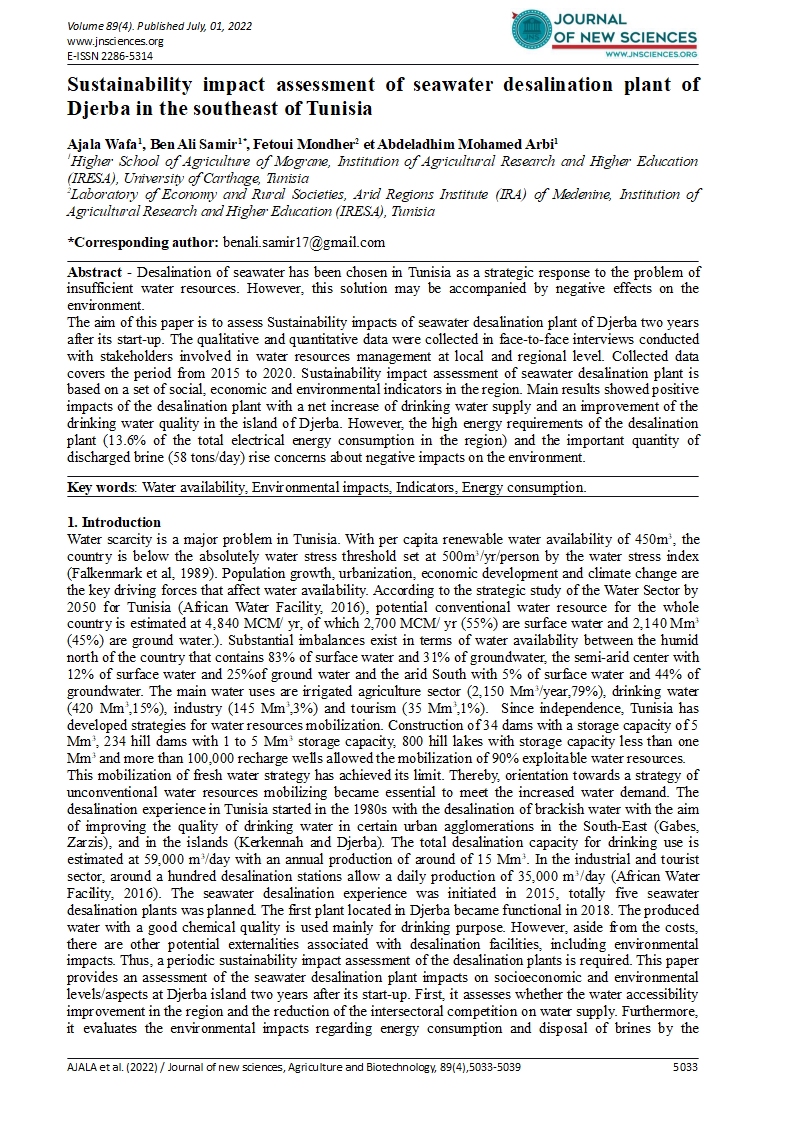

- Category: Volume 89
- Hits: 1996
Sustainability impact assessment of seawater desalination plant of Djerba in the southeast of Tunisia
Ajala Wafa1
Ben Ali Samir1
Fetoui Mondher2
Abdeladhim Mohamed Arbi1
1Higher School of Agriculture of Mograne, Institution of Agricultural Research and Higher Education (IRESA), University of Carthage, Tunisia
2Laboratory of Economy and Rural Societies, Arid Regions Institute (IRA) of Medenine, Institution of Agricultural Research and Higher Education (IRESA), Tunisia
DOI: https://doi.org/10.55416/sunb.jns01.2207.08904
Abstract - Desalination of seawater has been chosen in Tunisia as a strategic response to the problem of insufficient water resources. However, this solution may be accompanied by negative effects on the environment. The aim of this paper is to assess Sustainability impacts of seawater desalination plant of Djerba two years after its start-up. The qualitative and quantitative data were collected in face-to-face interviews conducted with stakeholders involved in water resources management at local and regional level. Collected data covers the period from 2015 to 2020. Sustainability impact assessment of seawater desalination plant is based on a set of social, economic and environmental indicators in the region. Main results showed positive impacts of the desalination plant with a net increase of drinking water supply and an improvement of the drinking water quality in the island of Djerba. However, the high energy requirements of the desalination plant (13.6% of the total electrical energy consumption in the region) and the important quantity of discharged brine (58 tons/day) rise concerns about negative impacts on the environment.
Key words: Water availability, Environmental impacts, Indicators, Energy consumption

